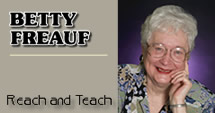GUTLESS
CONGRESS LACKS ACCOUNTABILITY
PART 1 of 2
By Betty Freauf
January 18, 2009
NewsWithViews.com
On
September 28, 2008 under the cover of darkness, the U.S. House of Representatives
met in an emergency session to try to push through a treasonous buyout
or bailout plan. It was only three pages long in length. It did not
pass. Even though it is a Constitutional requirement that all appropriation
bills begin in the House for some unknown reason to this writer, the
Senate on white horses came to the rescue. This created a massive potential
for what economists call a moral hazard, which is the tendency for people
to act less prudently when they know they will be shielded from the
consequences of their actions and what started out as a bailout for
a few, we now find the federal government bailing out everybody. Even
Larry Flint, publisher of Hustler magazine, has come with his hand out
representing the adult porno industry. I warned in
a previous article that there is no business like dough business
and if the elected leaders build the trough, the
pigs will come.
President George W. Bush said on Labor Day 2002 regarding the Gulf states
crisis, “We have a responsibility that when somebody hurts, the
federal government has got to move and now President elect Barack Obama
echoes that sentiment that the government is the solution; however,
former President Ronald Reagan once said government is the problem not
the solution. What was once a Constitutional Republic of checks and
balances is now, with the exception of only a few, nothing less than
a bunch of sycophants in empty suits parading as our elected and appointed
officials resulting in an unaccountable bureaucratic, administrative
government in which corporate interests are intrinsically intertwined
with the dipsticks in Washington.
Regarding presidential elect Barack Obama’s lack of qualified
Constitutional credentials to become the next President of the United
States, Lynn Stuter, NewsWithViews.com Contributor, in her
article asks What Will Congress Do? Probably one of the best people
to answer that might be a Congressman. Whether you agree or disagree
with Representative Bob Barr from Georgia, I believe his speech at Michigan’s
Hillsdale’s College Center for Constructive Alternatives Seminar
in September 1999, Rigging the Scales of Justice, although quite lengthy,
might be worth repeating. Barr was serving Georgia’s seventh Congressional
district in the United States House of Representatives. He was first
elected in November 1994; he served previously with the CIA and as the
United States Attorney for the Northern District of Georgia. Bob also
ran for president on the Libertarian Party ticket in 2008. This is being
reprinted by permission from Imprimis, a publication of Hillsdale College.
I first read it in The Florida Forum, which is no longer published.
It’s publisher, Dr. Shirley Correll, passed away in 2002. Shirley
is another one of those ladies I described in my February 18, 2003 article
The Wonderful Women in the Kitchen Intelligentsia.
In Part I Congressman Barr describes the Department of Justice, Part
II, how things changed when President Clinton took office in 1993, Part
III, how Independent Counsel Kenneth Starr was thwarted at every turn
in his investigation, Part IV about unrestrained Antitrust laws, Part
V How the minority is to be protected from unfair attacks, Part VI The
political abuse of the immigration system, Part VII unconstitutional
federalized state crimes and VIII, he describes how Congress supports
and embraces liars in the bureaucracy which has approximately three
million federal civilian employees and ten times that number funded
by American taxpayers through government contracts and other venues.
With those numbers in mind, allow me to share with you what Jean Roberts,
an Oregon State Employee of the year in 1973 had to say about government
employees. She says they are consumers, not producers and asks, “Have
you ever heard of an government worker, although eligible for unemployment,
laid off? It’s the taxpayers who pay for the mistakes of these
workers. There is no accountability in government at any level.
Following is Representative Barr’s remarks:
Part I - Imagine the results if baseball umpires were
hired and paid by only one of the teams on the field. The corrupt umpires
would make decisions to keep their employers happy. But the virtuous
officials wouldn’t have it much better. Every time they made an
honest call, it would be questioned by fans, players, and coaches turned
cynical by a flawed system. Even worse their honesty would make them
the target of the team that paid their salaries.
The Department of Justice is similar, with one hugely significant difference.
The only things at stake in a ball game are points, pride and profits.
The stakes in our justice system are property reputations, lives, and
the very survival of our republic. Corruption is not a victimless crime.
When
I left the Department of Justice in 1990, our umpires – an Attorney
General and a nationwide team of its attorneys, assistant U.S. attorneys,
and a cadre of investigators – were professionals of unquestioned
integrity. They included two Attorneys General (Ed Meese and Dick Thornburgh)
who not only allowed – but encouraged me to prosecute and jail
a sitting Congressman who was a prominent member of our President’s
own party because he lied under oath.
It is breathtaking to consider how much things have changed in one short
decade. Last year, the person lying under oath was the President himself.
Not only did Justice fail to respond, the Department actively protected
him.
Once, the hallmark of the Department was the integrity and independence
of its United States attorneys. Indeed, it was this independence that
over the years has even driven some to complain that United States Attorneys
run “independent baronies.”
Justice Department lawyers, especially United States attorneys, exercise
power based largely on prosecutorial discretion. The exercise of prosecutorial
discretion used to be a relatively simple task. The federal criminal
code was clear and short. Decisions to prosecute were relatively simple.
If the evidence was there that a major violation had occurred, the United
States attorney proceeded. The system was understood by all and enjoyed
broad credibility.
Now, in an age of pervasive and vast legal and regulatory power, much
has changed. After a century of furious legislative activity, there
are so many laws on the books that it is possible to prosecute practically
anyone for practically anything. Still, prosecutorial discretion is
– or should be- the process that ensures our jails are full of
drug dealers, not people who remove the tags from their mattresses.
Because it is impossible to enforce all laws, the men and women who
decide which cases to bring, decide which laws are enforced and which
laws are ignored, are the arbiters of moral code (our criminal laws)
to enforce. They are society’s umpires, and their work signals
to every citizen in our society whether we live in a nation ruled by
laws – or by personalities. The building blocks of society –
law, justice, and freedom – rest on their shoulders.
This discretion is not subject to judicial review and it is very resistant
to legislative oversight. It is one of the easiest and most powerful
executive prerogatives to exercise and one of the most difficult to
check or even monitor. For this reason, throughout our nation’s
history, the United States Department of Justice has placed a high priority
on avoiding any kind of political influence on prosecutorial discretion.
Because prosecutorial discretion is the precise place where the rubber
of laws meets the road of society, it represents the most important
point of attack for a corrupt or self-centered executive seeking to
politicize the Department of Justice. In the pre-Clinton Department
of Justice the appearance alone of political influence over prosecutorial
decision would have ignited a firestorm of inquires and their consequences.
II - All this dramatically changed when President Clinton
took office in 1993. He decided it was time to send a message to the
Department of Justice and to our entire government through the Department
of Justice. He could have sent around a couple of memos. Or if he really
wanted to make an impact, issued an executive order. That and some new
political appointees were what most Justice employees expected.
No such luck. Eager to let Washington and the nation know of his arrival,
the President shocked the legal world by firing all 93 United States
attorneys en masse, as one of his first actions as President.
Nothing like this had ever happened to the Department before. It was a move so crass in its political motivation, and so swiftly and brutally executed, that no one could ignore it. The message was simple: toe the party line, or we’ll replace you with someone who will. The mob would be proud.
|
Subscribe to the NewsWithViews Daily News Alerts! |
Since then, the Department hasn’t stopped making a public example of any employee with the integrity to think law first and politics second. When career prosecutor Charles LaBella was handpicked by Attorney General Janet Reno to head a campaign finance investigation, and then had the audacity to offer an objective legal opinion different from the political one sought by the Attorney General, his advice was ignored and his federal career was quickly scuttled. As a matter of law, LaBella’s opinion was airtight. Indeed, Reno herself appointed special prosecutors for violations of law that seem minute in comparison to the wholesale auctioning of an election to foreign countries perpetrated by the Clinton Administration. For part two click below.
Click
here for part -----> 2,
(1) New American 12/8/2008 P. 16
� 2009 Betty Freauf - All Rights Reserved













